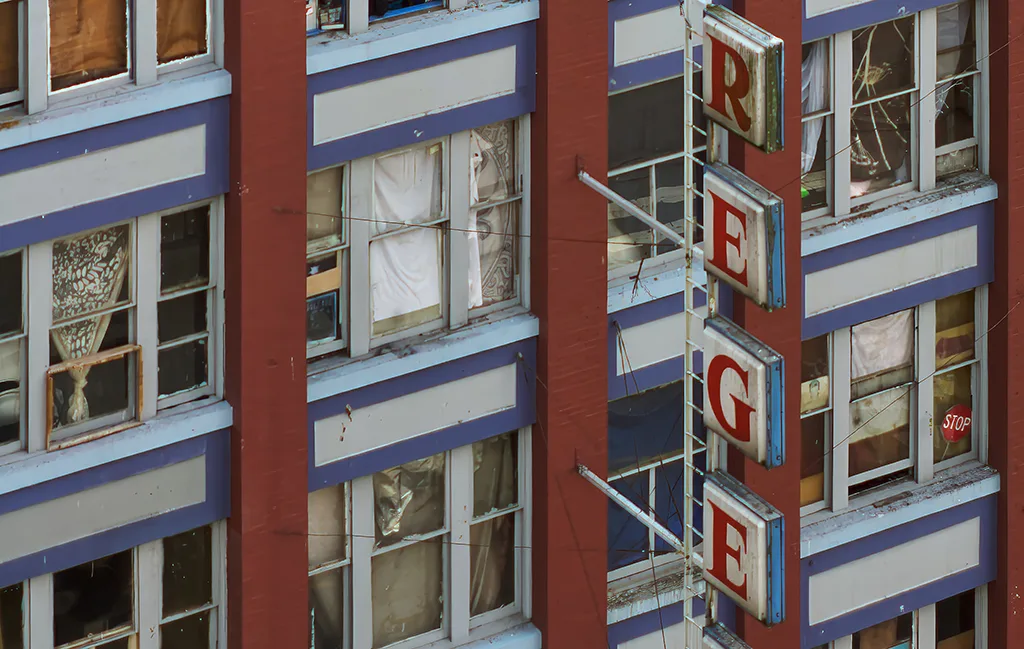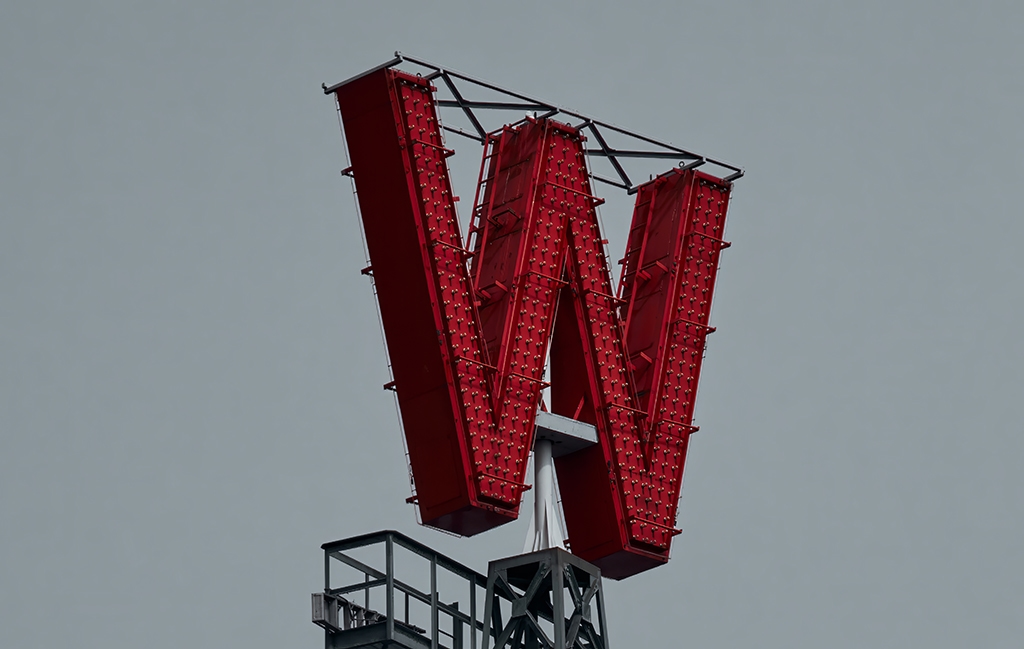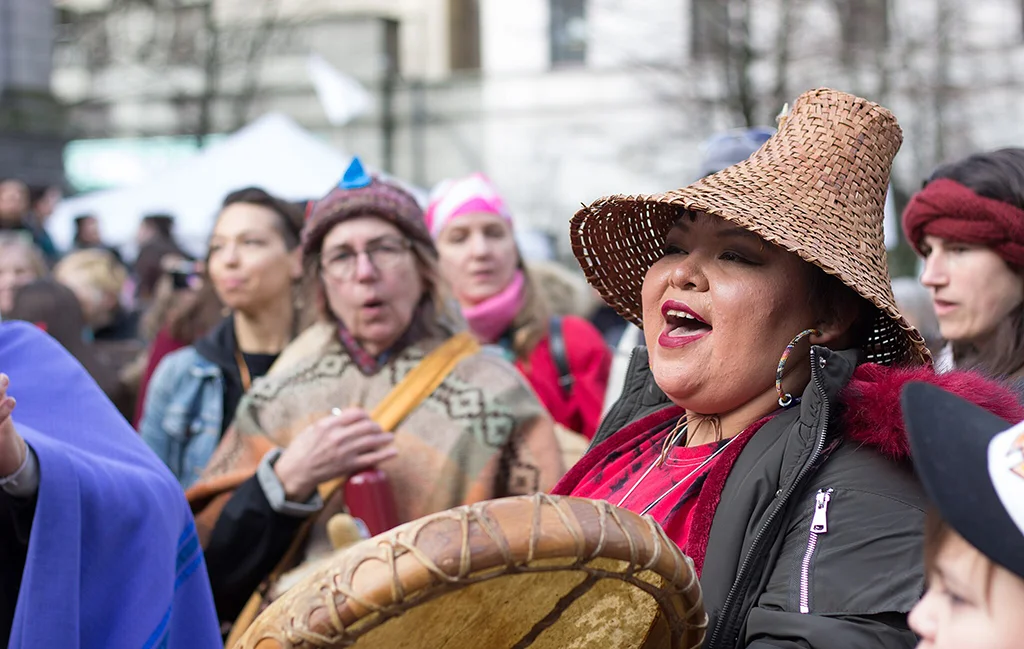Vancouver’s housing strategy faces mounting criticism as Single Room Occupancies (SROs) continue to vanish without viable replacements. Despite years of public investment and promises to revitalize aging buildings like the Regent Hotel, delays have left crucial housing stock vacant and deteriorating. Properties once earmarked for urgent redevelopment remain shuttered, while low-income residents face dwindling options amid escalating costs.
The slow pace of progress, coupled with a lack of transparency around key projects, has fueled concerns about whether the city is prioritizing its most vulnerable populations. With demolition looming over long-abandoned sites like Dunsmuir House, many fear that the remaining SROs may be lost before new affordable units are ready to house displaced residents.
This article examines Vancouver’s faltering approach to preserving affordable housing, focusing on the Regent Hotel and 500 Dunsmuir Street as emblematic cases. The fate of these properties could set the tone for how the city handles its growing housing crisis—whether through decisive action or further delays.
Regent Hotel Delays Reflect a Larger Problem
Acquired by the City of Vancouver in 2020, the Regent Hotel was once heralded as a key piece in the city’s housing strategy. Closed in 2018 following multiple safety violations, the derelict building was meant to undergo swift redevelopment to provide much-needed housing for Downtown Eastside residents. Yet, six years later, the site remains vacant, with no clear timeline for completion.
Public sentiment has grown increasingly critical as promises of rapid action have not materialized. In 2023, BC Housing began initial remediation by removing hazardous materials from the structure. However, tangible progress remains elusive, with critics pointing out the urgent need for clear milestones and transparency in the redevelopment process.
City officials have yet to provide a definitive date for the project’s completion, heightening concerns over Vancouver’s broader capacity to deliver on its housing commitments. The adjacent Balmoral Hotel has seen more progress, with demolition completed in 2023 and redevelopment into social housing anticipated to begin in 2027, pending necessary partnerships and regulatory approvals. The contrasting trajectories of these two properties highlight the complexities and delays inherent in urban redevelopment projects, especially those involving historic structures and vulnerable populations. The ongoing inaction at the Regent underscores the challenges faced by the city in balancing bureaucratic processes with the urgent need for affordable housing solutions.
Dunsmuir House and Vancouver’s SRO Preservation Crisis
At the corner of Dunsmuir and Richards streets, the once-grand Dunsmuir House tells a story of lost potential. Built in 1909, the structure has served various roles—from a bustling hotel to a temporary shelter. Yet it has stood vacant for the past 11 years, deteriorating behind closed doors. In December 2024, Vancouver councillors passed a motion to demolish the property, deeming it a public safety hazard due to structural instability.
A recent report from Vancouver’s Chief Building Official describes the building’s southeast corner as dangerously weakened, warning of a potential cascading collapse. With demolition being the only viable option at this point, many are questioning how such a valuable site—located in the heart of the city and assessed at $8.1 million—was allowed to fall into this state of neglect.
The case of 500 Dunsmuir Street reflects a broader crisis in Vancouver’s SRO preservation strategy. As more buildings face similar fates due to years of inadequate maintenance and oversight, the city risks losing critical low-income housing stock. Without decisive action to rehabilitate or replace aging SROs, Vancouver’s vulnerable populations will continue to bear the brunt of policy inaction.
Public and Private Roles in Tackling Vancouver’s Housing Crisis
In the face of Vancouver’s escalating housing crisis, partnerships between government bodies and private developers have gained traction as a potential lifeline for preserving SRO stock. However, such collaborations often spark debate, with proponents citing increased efficiency and resources, while critics warn of the risk of prioritizing profits over people.
Several initiatives have attempted to balance public oversight and private investment. For example, public-private partnerships (PPPs) have been employed to develop mixed-income housing projects, combining market-rate units with affordable options. While these efforts have introduced new housing stock, they have yet to fill the void left by vanishing SROs, where rent-geared-to-income units are desperately needed.
Critics argue that without stringent regulations and rent controls, private involvement can lead to gentrification rather than genuine solutions for low-income residents. For partnerships to succeed in addressing the housing crisis, they must be carefully structured to ensure long-term affordability and accessibility, with clear accountability measures in place. Otherwise, Vancouver risks deepening the very inequities it seeks to resolve.
Assessing Policy Responses and Exploring Viable Alternatives
Vancouver’s policy response to the housing crisis has been met with mixed reactions. While increased funding for social housing and initiatives to preserve existing SROs have been steps in the right direction, critics argue that the city’s approach lacks urgency and long-term vision. The delays surrounding key properties like the Regent Hotel and the possible demolition of Dunsmuir House are symptoms of a broader systemic failure.
Policy advocates stress that addressing Vancouver’s housing woes requires more than patchwork solutions. One proposed strategy is greater reliance on publicly funded, non-market housing—an approach that prioritizes affordability over profit. The city could also expand its use of expropriation powers to acquire neglected buildings and expedite their redevelopment for low-income tenants. Without bold measures, the decline of SROs may outpace efforts to replace or rehabilitate them.
Meanwhile, community organizations have called for tenant-led housing models, such as co-ops and land trusts, as sustainable alternatives to traditional market-driven approaches. These models empower residents to manage their living spaces, ensuring long-term affordability while fostering a sense of community ownership. If adequately supported, such alternatives could provide a path toward stabilizing Vancouver’s low-income housing sector and curbing the cycle of displacement.
Tangible Steps to Reverse Vancouver’s SRO Decline
Addressing Vancouver’s SRO crisis requires a comprehensive, multi-pronged strategy beyond temporary fixes. Experts advocate for increased public investment in non-market housing, ensuring that low-income residents can access stable, long-term accommodations. This would involve rehabilitating existing SROs and creating new affordable housing options that meet modern standards of habitability and dignity.
Regulatory reforms are also critical. Strengthening tenant protections, enforcing maintenance standards, and closing loopholes that allow landlords to evade their responsibilities would help safeguard the city’s remaining SRO units. By ensuring these buildings remain livable and affordable, Vancouver can prevent further displacement of its vulnerable populations.
Finally, fostering innovation through alternative housing models, such as co-ops, land trusts, and modular housing, could provide sustainable solutions to the crisis. These models emphasize community involvement, long-term affordability, and adaptability, offering a viable path forward in an increasingly unaffordable city. Without decisive action on these fronts, Vancouver risks deepening its housing inequities and losing what little affordable housing stock remains.
A Critical Juncture in Vancouver’s Housing Strategy
The stagnation surrounding properties like the Regent Hotel underscores a critical failure to address urgent housing needs in a city where every delay compounds the crisis. Without swift, decisive action, Vancouver risks further entrenching cycles of displacement and poverty, with its most vulnerable residents bearing the brunt of inaction. Vancouver risks deepening its housing inequities and losing what little affordable housing stock remains.
Stakeholders must move past the inertia and fragmented initiatives of the past decade. Delivering concrete results will require coordinated efforts across all levels of government, transparent milestones for redevelopment, and the prioritization of long-term affordable housing over temporary fixes.
At this pivotal juncture, what happens next will serve as a defining moment in the city’s housing narrative. Real progress is no longer an abstract goal—it’s a necessity, and time is running out to prove that promises can translate into action. What Vancouver needs now is not more rhetoric but a resolute commitment to turning these long-stalled projects into real, livable housing. Until then, the promises of revitalization will remain as empty as the buildings lining its streets.
Denise is a long-time advocate for affordable and dignified housing in the Downtown Eastside. Having lived in SROs and volunteered in homeless shelters, she brings a personal understanding of the housing crisis and its impact on the community. Her work reflects years of lived experience, frontline work, and commitment to creating better living conditions for DTES residents.







Leave a Comment